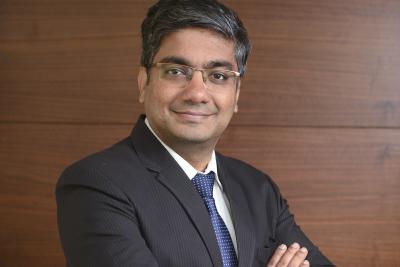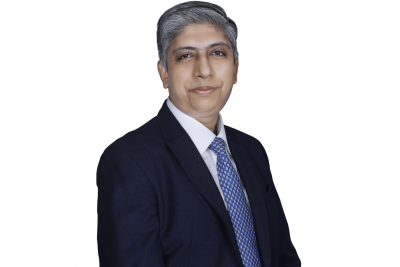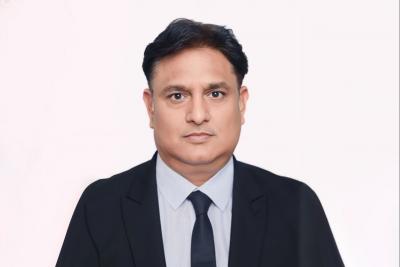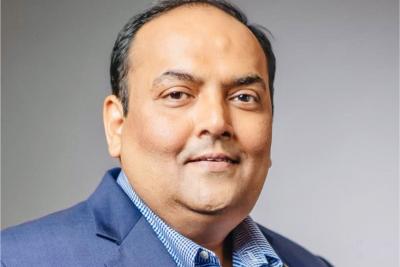Indian Wealth Management Leader Soumya Rajan on Aligning the Offering to Private Client Diversification and Globalisation
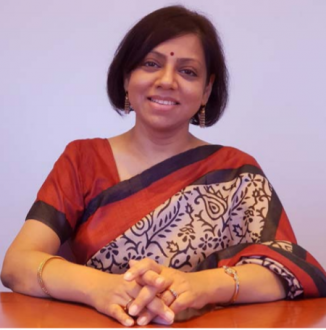
Soumya Rajan of Waterfield Advisors
Aug 4, 2022
Indian wealth management firm Waterfield Advisors dates back to 2011, which is a long time in the relatively youthful Indian independent wealth management community. The business has enjoyed rapid expansion and now manages around USD4.5 billion in AUM across seven offices in the major centres in India, and by the end of 2022 is on track to have 9 offices in total. Staff numbers total 120 today and the plan is to raise that figure to 150. Around 50 of the team are client-facing advisors and relationship managers, serving some 200 wealthy families across the nation. Hubbis ‘met’ with founder and CEO Soumya Rajan to learn more of the firm’s domestic expansion and to hear of the plans to open offices in Singapore, London, Dubai and the US. She offered numerous incisive observations on the Indian wealth management environment and explained how Waterfield has continued to diversify its range of products and services in alignment with the evolution of private clients’ expectations and in anticipation of their future needs.
Rajan opens the conversation by explaining how far the wealth industry has advanced since she left her formal private banking role at Standard Chartered to create Waterfield.
“At that time, we wanted to look at wealth management with a far more holistic lens than was the norm at that time,” she recalls.
“We were conflict-free, we introduced a fee-based model, and we extended into all the other areas, such as legacy and succession planning structuring and investment vehicles and we began helping clients with their approach to philanthropy. On the investment side, we extended the range of assets and markets to include private and alternative assets, especially for UHNW families. Our overall offering reflected the greater globalisation of Indian wealth and perspectives, especially for the very upper tiers of wealth.”
Diversification from all quarters
She explains that the firm’s diversification has been aligned to the rapid expansion of wealth in the HNW and UHNW segments, as India’s economy itself diversified and grew and became more global. The speed of growth has also been turbocharged by the financialisaton of savings, for example, with the wealthy shifting from deposits and from gold, with listed and private investments taking up an increasing portion of broader and increasingly diversified portfolios.
Another trend that she has witnessed is the democratisation of wealth management, with listed and other investments becoming more prevalent amongst the mass affluent, as well as an increasing focus on legacy planning amongst those individuals and families. “Everything we do at Waterfield is a reflection of these trends,” she says.
Expanding the client base
She adds that the firm has also diversified its clientele through the new Bespoke Wealth offering, which aims to capture customers in the USD5-10 million range, whereas their traditional clients were USD10 million and above in AUM. “We are specifically targeting corporate professionals, and an area which is very dear to me, namely women, as they increasingly need expertise to help in all these key areas as they build more wealth and inherit and control more of India’s assets.”
All these elements have helped the firm build seven offices in Mumbai, Delhi, Bengaluru, Chennai, Cochin and Goa. On July 1, they opened in Hyderabad and will be opening two more offices in Ahmedabad and Pune by the end of 2022.
Welcome to Singapore
Another interesting step is the new licensed Singapore office that is slated to open on April 1, 2023. “Right now, we provide advice to offshore clients through a US entity named Zephyr Management, which was founded by Thomas Barry, the former CEO of the Rockefeller Family Office, and with their help, we are now building out our entire global capabilities,” she reports. “The next phases would be London, Dubai and the US, as we expand to become more of a truly international operation over the coming few years.”
She expands on the plans for the Singapore office, noting that it will be an ideal platform for the provision of family office services to clients. “Singapore offers excellent regulation, governance and is an ideal hub from which to provide clients with global advice and ideas, and we can also use it as our offshore booking centre. Moreover, she says Singapore can also operate as a conduit for capital flows back into India.”
Scaling up the private markets
She explains that a core mission for the firm is to increase their broader presence in alternative assets and scale that business up to the level where clients are committing larger sums to private equity and VC and obtain institutional level access and fees. “Our clients wanted us to create a pooling vehicle through which we then invest on their behalf; hence we created a fund of funds that is now worth close to USD75 million and invests in five funds currently,” she reports. “It is increasingly popular with our clients.”
She explains that the next phase is to do something similar for clients offshore to obtain larger dedicated exposures to India. “Offshore investors tend to allocate to India through regional funds, but as India becomes a more favoured destination for offshore investors, we want to be able to be that global advisor to offshore clients who are looking at India for specific allocations,” she elucidates. “Again, Singapore is the ideal platform for that activity and expansion.”
Women of wealth
Rajan returns to her earlier comment about expanding the advisory and services suite specifically for women. “Many Indian women are now financially independent, but not necessarily financially literate, and they often pass those decisions to spouses or relatives,” she observes. “We want to be involved in helping change that. Moreover, women tend to outlive men and need to be able to take control of the wealth when their husbands pass away, so we are making a great effort to educate, inform and encourage these women to take more control of their assets.”
Expanding the network
Additionally, she says Waterfield wants to help open new networks to these women, to help them access partnerships for businesses, capital, investment ideas and so forth. “Women tend to have limited networks in these areas, so we are really helping to boost these ecosystems for them,” she reports, “and putting them in touch with each other, all of which will stimulate interest and activity. In short, networking will become the second big pillar around which we will anchor this aspect of the proposition.”
Planning for the future
The third element is to enhance advice and boost goals-based investing practices for these women. “They might want to plan for their children’s education, or to move some capital to a new business, or for impact investing, and so forth,” she explains. “Additionally, and what I call the fourth pillar of our proposition for women clients is that the wealthier among them might even want to put money to good causes, perhaps create a philanthropic foundation. We are there to help in all these endeavours.”
A genuine commitment
She concludes her comments on women in wealth management with an emphatic statement.
“We are not simply paying lip service to these ideas; we are truly committing resources and expertise,” she says. “The firm was founded by a woman, and more than 50% of our staff and our leadership team are women. This is something I believe in strongly.”
Key Priorities
Rajan explains that a core objective is to become more global in vision and capability. “We can compete with some of the international private bank names and serve the global Indian client very well indeed,” she states. “We aim to, in some areas, replace some of these foreign names and build a more global-focused clientele in India.”
The second big priority it to expand and further professionalise the alternative assets business. “There is a lot happening in India’s private markets,” she reports. “For example, we now track close to 100 different private equity and venture capital managers in India itself, and we are almost like the Cambridge Associates for India in terms of the information that we have. We are building our presence for domestic clients and for offshore clients as they both increasingly allocate to alternatives.”
The third key mission is around ESG and impact. “We are a signatory to the United Nations Principles of Responsible Investing, so all our investment decisions have the ESG lens,” she reports. “A key priority is therefore to further integrate ESG into everything we do and to our advice and product flows. We have a personal commitment to this, as well as a fiduciary responsibility in terms of the money that we're managing and the advice we offer.”
The trusted advisor
She closes the conversation by reminding us that the overall mission for the firm from the outset was always to become the trusted advisor to the clients and to their families.
“We always saw from day one that while some banks and financial institutions focused on the investment side of things, there were many gaps to be filled in a broader range of advice and services, and that is why we have managed to grow so rapidly and why we continue to diversify and expand,” she explains. “This is also helping us attract and retain the right talent, and we are confident that as a fee-based business, we can scale up and really build this firm into something remarkably capable, offering a broad range of expertise and excellence. We are the trusted advisor because we always strive to align trust with expert and highly objective advice.”
Getting Personal
Rajan was born in Mumbai and frequently moved around India due to her father’s job working with the State Bank of India, India's largest bank. He was also posted overseas; hence she spent some years of her earlier education in New York in the late 1970s.
“When we came back to India, we moved around cities such as Mumbai, Bengaluru, Kolkata and Delhi, with me at different schools in each location,” she recalls. “We are great believers in education, and I was later lucky enough to win a scholarship to read mathematics at Oxford, and that is rather fortunately where I met my husband. We then returned to India, where I have worked all these years, aside from a stint with Standard Chartered in Singapore for two years.”
She recalls her years with Standard Chartered with some obvious affection. She says she was lucky to meet the then Group Chief Executive of Standard Chartered, Mervyn Davis, when he visited Mumbai in 2003 and when she was branch manager at one of the prestigious Mumbai branches.
“We chatted when he came over,” she recalls, “and he very quickly offered me the chance to expand my career internationally, and before long, I was heading to Singapore. He had said that to be a complete banker, it is not about just the front line and the sales; he said one needs to know and understand credit. So, I was offered a role in credit collections in the region; things were really rather tough at the time with the SARS outbreak. When I came back to India, I headed the SME risk desk for Standard Chartered. That meeting with Mervyn and his mentorship really helped changed my career path and my fortunes.”
She later became head of the private bank for Standard Chartered in India. At the age of 38, that was a phase of her career that helped her immensely in the creation of Waterfield and the subsequent expansion. “That was the platform for my ideas and my vision, and truly set the stage for Waterfield,” she reports.
She is still happily married to Mukund Rajan, who she met during her years at Oxford. He had a very successful career with Tata Group for 23 years and is now an entrepreneur himself, focusing on ESG. “He was Tata’s chief for ethics and sustainability and corporate communications as well, and is an expert on ESG,” she reports. “He even wrote a book on this recently, and is now advising several clients, companies and large corporates on developing their ESG strategies.”
Spare time might be spent quietly at home reading or walking in the countryside. “We have a lovely home in the Kotagiri in the Nilgiris in Southern India, where the weather is really wonderful, so we love the outdoors. Nilgiris when translated literally means the Blue Mountains, and is home to many tea plantations, and is quite cool.”
She says she is also passionate about singing and loves salsa dancing. “I also trained in classical Indian music and sang right through in choirs, including at Oxford,” she explains. “We are hoping to have our own Waterfield choir before long, so watch this space, it will be an interesting way to differentiate ourselves.”

Founder & Chief Executive Officer at Waterfield Advisors

More from Soumya Rajan, Waterfield Advisors
Latest Articles



